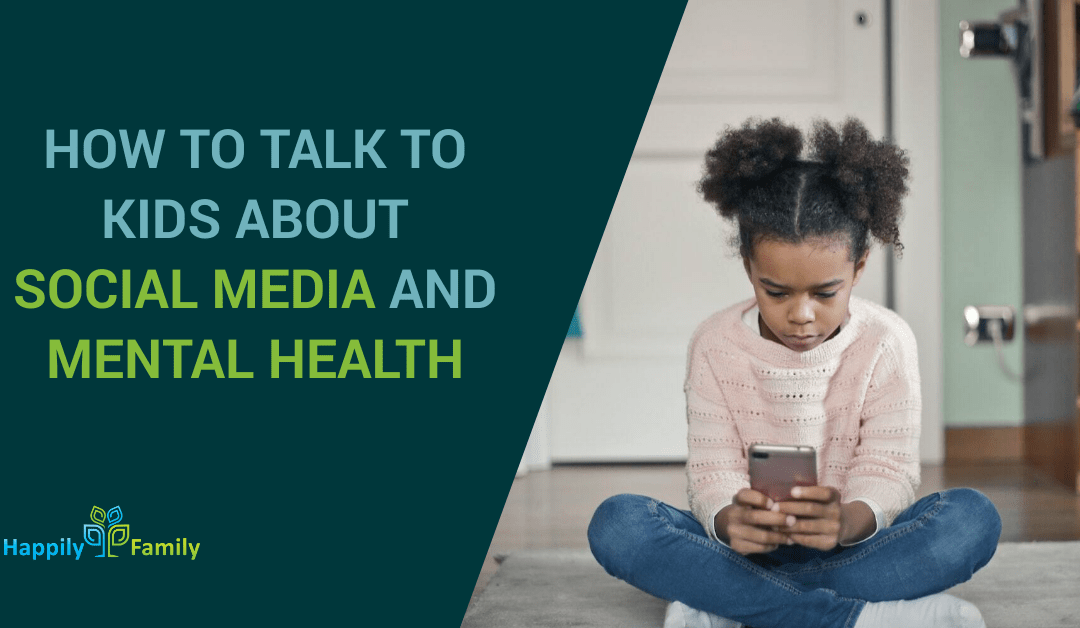I heard a mom say, “When I go into my 9-year-old daughter’s room in the afternoon and I see her in bed under the covers on her tablet, I feel worried and I don’t want her to miss out on playing with her friends.”
We’ve read the news headlines. We know that screens and social media can impact kids’ mental health, learning, creativity, and attention span.
But how do we talk to our kids about their screen use?
- How do we have conversations without overreacting or underestimating the risks?
- How can those conversations build relationship and trust with our kids, rather than just cause our child to roll their eyes?
- And how do we help our kids to be more self-aware and regulate their own screen use?
A Guide For Parents: 12 Conversation Starters to Get Kids Talking About Their Screen Time and Social Media Use
A lot of parents limit their child’s screen time, which makes sense. But what is our long-term digital parenting goal?
Ultimately as our kids grow up, we want them to start recognizing how social media and screens impact their feelings. We want our kids to be able to make thoughtful and healthy choices about their screen use.
These 12 conversation starters are a literal “cheat sheet” to get you and your child talking. Use these questions over several conversations–throughout the weeks, months, and years–so you can help your child or teen be more aware and thoughtful about their screen use and social media consumption.
Put them in your own words and adjust for the age of your child.
-
What is the best part about using a screen? (Entertainment? Learning? Connecting with friends? Play? Relaxation? To change your mood? To help you fall asleep? Relieve boredom?)
-
Is there anything you’d like to change about how you use screens so that it would better meet your needs?
-
How do you feel after you’ve been on a screen? Besides screens, what other things in your life do you use to help change your mood?
-
What is your favorite way of connecting with your friends (in-person, on social media/messaging, through an online game, or on a phone call)? What is the hardest way to connect with friends?
-
Do you ever compare yourself to the people you see online? How do you think you match up?
-
Do you think people do things to make themselves look better in videos? Do you ever change how you look for a video or a photo?
-
Are people better looking in the videos you watch than people in your real life? For someone to be popular on social media, do you think it’s more important to be good-looking? Or funny? Or unique? Or smart? Or athletic?
-
Sometimes kids or adults see pictures in magazines or billboards, actors, or people on social media and they think, “I should look like that too” and then they feel bad about themselves if they don’t. Do any of your friends ever think that way? Do you ever think that way about yourself?
-
A lot of adults are concerned that social media makes kids feel worried or sad. Do you think social media negatively impacts kids' feelings or mental health? Have you seen ways that social media can improve kids’ mental health?
-
How do you know if you’ve been on a screen “too much”? If another teen wanted to spend less time on screens, what advice would you have for them?
-
How do you think social media companies and “creators” or “influencers” make money? What do you think about people making money this way?
-
What could social media companies do to make their platforms healthier for kids?
You’ll notice that these questions aren’t about limit setting, nor making kids feel guilty or defensive about time that they’ve spent on a screen.
While limit setting has its place in digital parenting, these questions are intended to engage your child or teen to be more thoughtful about their technology use, how it’s working for them (or not), and if there are things that they want to do differently.

